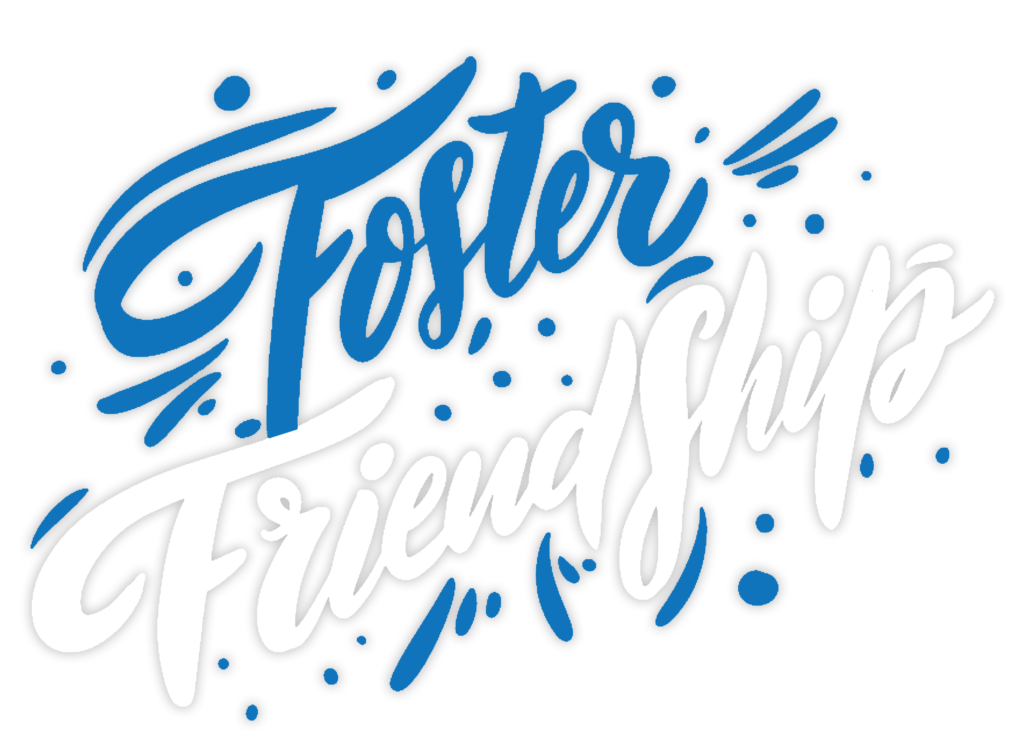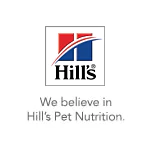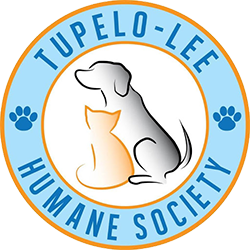
Fostering FAQ's
Fostering is truly life-saving! As a lifesaving animal welfare organization with limited kennel space, our ability to care for pets in the shelter depends on available housing. By opening your home, love, and care to a foster pet, you help us expand the support we can provide for homeless animals in need.
Our goal is to have 25% or more of the pets in our care living in foster homes within the community. In 2024 alone, TLHS cared for over 1,800 pets! By fostering, you become a critical part of our mission to provide safety, love, and a path to permanent homes for these animals.
There are many ways to make a difference through fostering. Explore our Foster Programs to see how you can help save lives today.
You only need to provide humane housing and love! TLHS does not expect fosters to purchase food, bedding, water/food bowls, or other supplies—though you may choose to do so if you wish.
TLHS provides fosters with:
Food supplied through the Hill’s Science Diet Shelter and Love Program (all foster pets eat Hill’s Science Diet)
Guidance and resources for behavioral, medical, and general care
Certain supplies such as crates, collars, and leashes (as available)
Care coordination if you go out of town
All medical care, including emergencies, provided through our contracted veterinarians
Assistance with marketing your foster pet for adoption or placement
Supplies used can be returned to TLHS to support other foster pets once your foster animal is returned.
Foster commitments vary depending on the type of program:
Doggy Day Out / Field Trips: Pets are out of the shelter for a few hours at a time.
Sleepovers / Short-Term Stays: Weekend stays or short breaks from the shelter.
General Foster Program: Pets stay in your home for a consistent period to provide care, socialization, or recovery.
We typically require a minimum two-week commitment, with most fosters lasting up to 30 days, depending on your availability.
Young puppies and kittens are often adopted quickly.
Adult dogs and cats may take 1–2 months to be adopted.
Important Policy Note:
We no longer allow unaltered pets to go out on a foster-to-adopt basis, as this has caused issues with pets not being returned for spay/neuter, contributing to overpopulation. Pets who are already heartworm treated or negative and spayed/neutered are considered ready for adoption and are not eligible for foster-to-adopt.
Please check out our Available Foster Programs for more details about each program and expectations.
Fostering a TLHS pet is a critical role that helps ensure their health, safety, and socialization while they wait for a forever home. As a foster, you provide a loving environment, daily care, and attention that prepares the pet for adoption. Your support directly impacts the success of each pet’s journey to a permanent family.
Provide a safe, clean, and caring environment
Provide food, water, toys/enrichment, and shelter
Provide exercise and socialization as appropriate
Monitor any medical and/or behavioral concerns
Transport the pet as needed:
○ Ensure the pet is brought to and from TLHS for veterinary visits
○ Attend meet-and-greets with potential adopters (if the animal is available for adoption)
○ Bring the pet for vaccinations or revaccinations
○ Administer or provide for monthly preventive medications (e.g., flea, tick, or heartworm prevention)Carefully read all documents and follow all instructions provided by TLHS
To review the full description of the foster program, including expectations, responsibilities, and emergency guidelines, please click here.
Many of our pets come to us as strays or abandoned, so we cannot always guarantee their temperament or health. However, we do offer a matchmaking process, similar to what we do for adopters, which allows potential fosters to participate in a meet-and-greet with the dog before bringing them home. We provide fosters with as much information as possible prior to taking the dog into their care, and we continue to support fosters as they learn more about the dog’s personality and needs.
For guidance on providing structure, training, and enrichment for your foster dog, please click here.
Fosters must live within approximately 40 miles (about an hour drive) of the Tupelo Lee Humane Society in Tupelo, MS. This ensures access to medical care, participation in adoption events, and convenience for potential adopters, many of whom reside in Lee County, MS.
If you live farther away, we encourage you to support your local shelter or rescue, as there are several in northeast Mississippi that may better suit your travel and fostering needs. Saving lives works best when shelters, rescues, and individuals collaborate and network to help animals in need.
To view a list of rescues and shelters in our coalition that may be seeking fosters, click here.
Yes, you can come to our shelter to pick out a foster animal! We encourage you to do so, as many of our shelter pets could use some foster TLC.
However, please note that not all animals are eligible for fostering. Only pets that still require time away from the shelter environment—such as animals needing medical recovery, socialization, or adjustment—are eligible. Animals that are already spayed or neutered, heartworm negative/treated, or otherwise ready for adoption typically go directly to their adoptive home and are not available for foster placement.
In April 2021, TLHS moved to an “On-Deck” Fostering method to recruit fosters, provide resources and training to foster caregivers, and to provide our team with valuable information to pair you with a foster pet. If you would like more information, please email foster@tupeloleehumane.org to be placed on a waiting list to be contacted by our Foster Coordinator when we have a foster pet that matches your lifestyle and commitment.
Fostering only costs your time, love, and attention! TLHS provides everything else your foster pet needs, including food (Hill’s Science Diet through our Shelter and Love Program), bowls, and other supplies. All medical care is coordinated directly through TLHS and our contracted veterinarians. Your foster pet just needs a safe, caring home—everything else is provided at no cost.
Can my foster animal stay outside?
All foster cats must be kept indoors only. Puppies and small dogs are also required to stay inside. Older puppies and adult dogs may be considered for outdoor fostering on a case-by-case basis—please discuss this with our foster team.
Recommendations & Requirements:
Fenced-in yards are recommended for outdoor dogs but are not required.
City ordinances, HOA rules, or other local regulations may vary depending on your location—fosters must remain compliant.
Puppies who have not completed their full set of core vaccinations cannot go outside or touch the ground, as they are at high risk for contracting viruses and illnesses such as parvovirus.
Important: TLHS prohibits chaining, tethering, or using cable runs for foster animals. If you are unable to provide a safe indoor environment for any reason, please notify our foster team before taking an animal home.
Foster-to-Adopt is considered on a case-by-case basis. TLHS does not allow this for unaltered animals due to past experiences where pets were not returned for spay/neuter, which contributed to pet overpopulation. Similarly, animals that are already heartworm-negative/treated and spayed/neutered are generally not eligible for Foster-to-Adopt, as they are ready for adoption immediately.
When a pet is eligible for Foster-to-Adopt, it remains in your care until any required spay/neuter procedures (and heartworm treatment, if applicable) are completed. Once these requirements are met, adoption may proceed, and all applicable fees and contracts apply.
Please notify our foster team if you are interested in a specific pet for potential adoption, as eligibility is determined on a case-by-case basis.
Important: Adoption fees and paperwork must be completed at the time the pet is placed in your foster care. During the program, the pet remains in TLHS custody but is temporarily in your care until all veterinary requirements are fulfilled.
To view pets currently eligible for adoption, click here.
Foster Programs
Looking for a new furry family member but aren’t sure which pet is the best fit? Speak with our adoption and foster team to allow us to match you with the perfect pet. [Click here to learn more about matchmaking and how it works.]
Important: TLHS no longer allows Foster-to-Adopt placements. Previously, pets awaiting spay/neuter or heartworm treatment could go into foster homes until adoption was finalized, but this policy has been discontinued due to recurring issues:
Unaltered pets were sometimes not returned for spay/neuter, which contributed to overpopulation.
Pets that are already heartworm-treated, heartworm-negative, and spayed/neutered are considered ready for adoption and do not require a Foster-to-Adopt placement.
All pets available for adoption are fully vetted and ready for a permanent home whenever possible. By focusing on direct adoptions and fostering only for temporary care before adoption, we can ensure pets are placed quickly, safely, and responsibly, helping reduce overcrowding in our facility and giving every animal the best chance to find a loving home.
The length a pet may be in a “foster to adopt” home depends on the medical needs of the pet and when the pet can be spayed or neutered. Many of our dogs that require heartworm treatment prior to adoption may be in a foster home for the duration of the heartworm treatment (~3 months!). For pets that are under 8 weeks in age, the foster family may need to foster for a few weeks until the pet is old enough and weighs enough to be safely spayed or neutered. For many of our heartworm negative and already spayed and neutered pets, we can get them into their adoptive family’s home right away! Please note that we are unable to send a pet into foster for a “trial” period. Adopted pets have a 14 day exchangeable period of time starting from the date the adoption is finalized.
Allowing all of our pets to be available for foster and/or adoption allows pets to go into homes faster and to start the matchmaking process sooner so that we can keep space in our facility open for incoming pets and create the best plan of action for every pet in our care.
Looking for a new furry family member but aren’t sure which pet is the best fit? Speak with our adoption and foster team to allow us to match you with the perfect pet. [Click here to learn more about matchmaking and how it works.]
Important: TLHS no longer allows Foster-to-Adopt placements. Previously, pets awaiting spay/neuter or heartworm treatment could go into foster homes until adoption was finalized, but this policy has been discontinued due to recurring issues:
Unaltered pets were sometimes not returned for spay/neuter, which contributed to overpopulation.
Pets that are already heartworm-treated, heartworm-negative, and spayed/neutered are considered ready for adoption and do not require a Foster-to-Adopt placement.
All pets available for adoption are fully vetted and ready for a permanent home whenever possible. By focusing on direct adoptions and fostering only for temporary care before adoption, we can ensure pets are placed quickly, safely, and responsibly, helping reduce overcrowding in our facility and giving every animal the best chance to find a loving home.
The length a pet may be in a “foster to adopt” home depends on the medical needs of the pet and when the pet can be spayed or neutered. Many of our dogs that require heartworm treatment prior to adoption may be in a foster home for the duration of the heartworm treatment (~3 months!). For pets that are under 8 weeks in age, the foster family may need to foster for a few weeks until the pet is old enough and weighs enough to be safely spayed or neutered. For many of our heartworm negative and already spayed and neutered pets, we can get them into their adoptive family’s home right away! Please note that we are unable to send a pet into foster for a “trial” period. Adopted pets have a 14 day exchangeable period of time starting from the date the adoption is finalized.
Allowing all of our pets to be available for foster and/or adoption allows pets to go into homes faster and to start the matchmaking process sooner so that we can keep space in our facility open for incoming pets and create the best plan of action for every pet in our care.
Looking to help save a life but unable to commit to a pet long-term? We could sure use YOUR help! Our Temporary Rescue Foster program supports pets on their way to partnering rescues. Many rescues prefer that animals spend about 1–2 weeks in a foster home before their transport to their new families in the north.
This program is perfect for pet enthusiasts who want to actively support our mission and help expand our lifesaving efforts. Fosters are given a scheduled transport date and receive all required veterinary care at pick-up. Many fosters even get to connect with the receiving rescue on social media, seeing updates of the pet enjoying a warm home and a loving family.
During peak seasons, we also need assistance with infant care, such as bottle babies in the spring and summer months. Orphaned kittens and puppies require nearly round-the-clock care, which can be exhausting for our staff who already care for personal pets and existing fosters. Any support—through fostering or volunteering to provide extra TLC—is immensely appreciated and helps us save more lives.
A Finder Foster is someone who has found a stray or lost pet and agrees to provide temporary care until TLHS can intake the animal into our facility. Our Finder Fosters play a critical role in supporting animals in transition, especially sick, injured, or municipal animal control pick-ups. Healthy strays or owner surrenders are typically scheduled for intake within two weeks of contact with our Intake Coordinator.
Finder Fosters receive guidance on rehoming strategies, checking for microchips, listing strays on local social media and Petco Love Lost, and coordinating with rescues and other foster homes. Their efforts help advance our goal of a no-kill community—not just a no-kill shelter.
To further support our mission, Finder Fosters can participate in our “Care To” program, which allows them to adopt the pets they’ve been fostering at a reduced adoption fee. This program recognizes their contributions while giving them the opportunity to provide a permanent home for an animal they’ve cared for.
To learn more about our “Care To” program, click here.
Can’t take a dog home overnight because of other pets or work schedules, but want some furry companionship during the day? Our Doggy Adventures program is perfect for you!
These short-term foster outings give dogs a break from the kennel environment, whether it’s a trip to Petco or Petsmart, a walk in the park, or even just hanging out at your home for a few hours. You’ll help our dogs experience a little freedom, socialization, and fun while serving as an advocate for their future adoptive families.
We provide a leash and collar for the dog you check out, along with a little baggie for treats or necessities. Feel free to share photos or videos on social media—these are often used to update adoption profiles on our website, helping our dogs find homes faster.
Our goal is to offer a flexible pet experience for community members while improving adoption outcomes. By participating, you’re giving our dogs a break from the daily structure of the shelter and helping large dogs showcase their personalities to potential adopters.
Please note: Doggy Adventures are only available during our regular business hours.
Ready to become a Field Trip “Tour Guide”? Email us at foster@tupeloleehumane.org or call 662-205-4221 and ask to speak with a Placement Coordinator or a member of our Foster Team to book your Doggy Adventure!
Ready to Make a Difference?
Every day, animals at TLHS need temporary care while they recover, grow, or wait for their forever home. If you’re ready to open your heart and home — even for a short time — we’d love for you to join our foster family.
Click below to view pets currently in need of foster care and learn how you can help save lives today.

